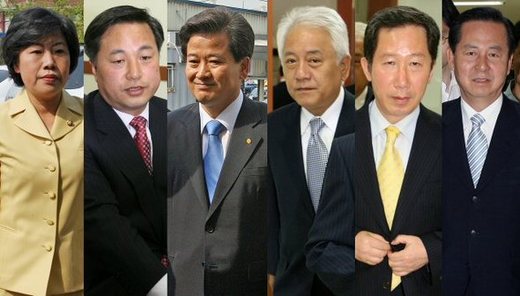 |
All wonder who, what to blame for election results
The ruling Uri Party, after a crushing defeat in the May 31 local-level elections, faces internal conflicts over its leadership. Conservative-leaning party members are refusing to accept former welfare minister Kim Geun-tae as a possible candidate for party chair, mentioning his "ideological inclinations" as a successor of former chairman Chung Dong-young, who stepped down last week to take care of responsibilities related to the elections. One party lawmaker at a June 3 meeting of conservative members said, "A concern was raised that if Rep. Kim becomes the next chairman, the party may be considered as leftist. Some lawmakers pointed out that the popularity of the party dropped sharply because the current government is misunderstood as a ’leftist administration.’ "The ideological conflict is also creating a difference of opinions on the party’s policy lines, especially in the areas of real estate and taxes, experts noted. A subgroup within Uri has voiced their objection to the party’s reformist economic policies, saying these were behind the election loss. Some claim the Uri Party suffered a crushing defeat at the elections because the party could not produce reform results and did not come up with visible measures to resolve economic polarization. Uri’s Rep. Rhee Mok-hee, who belongs to this school of thought, criticized those who seek review of real-estate and tax policies, saying, "Those who made the working and middle classes turn their backs on the Uri Party are behaving inappropriately." Instead of trying to tinker with policy, he said, the party should evaluate its "major loss" caused by its "lack of firmness."





